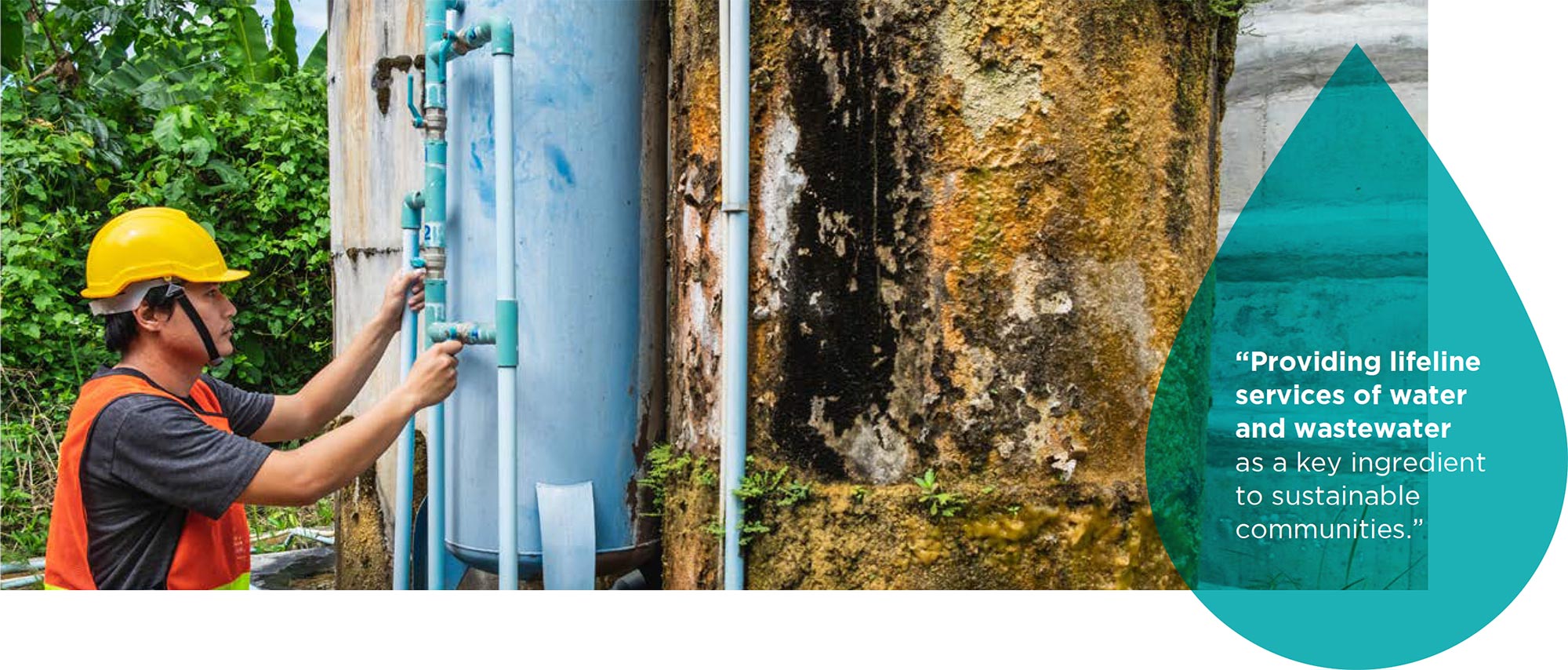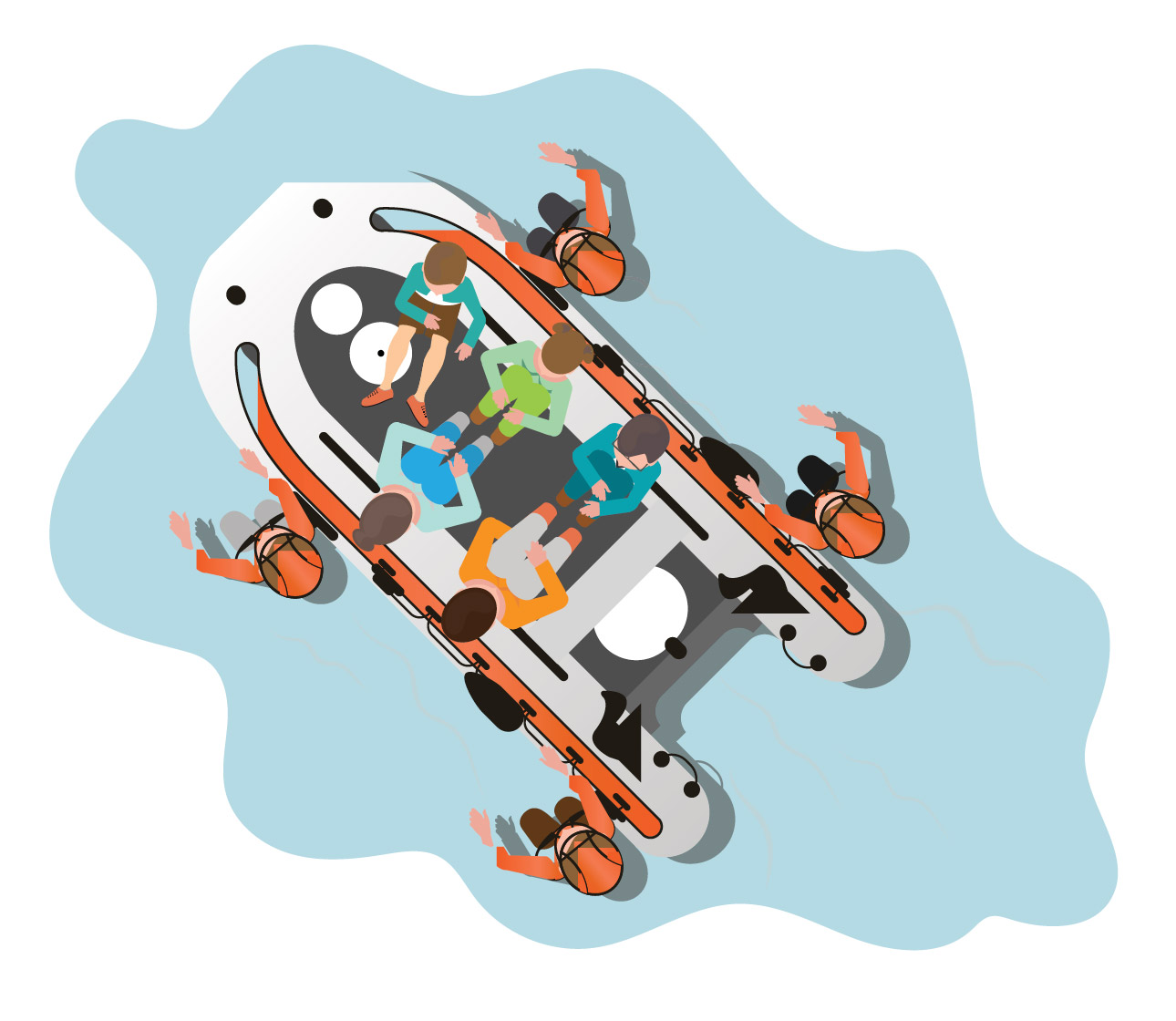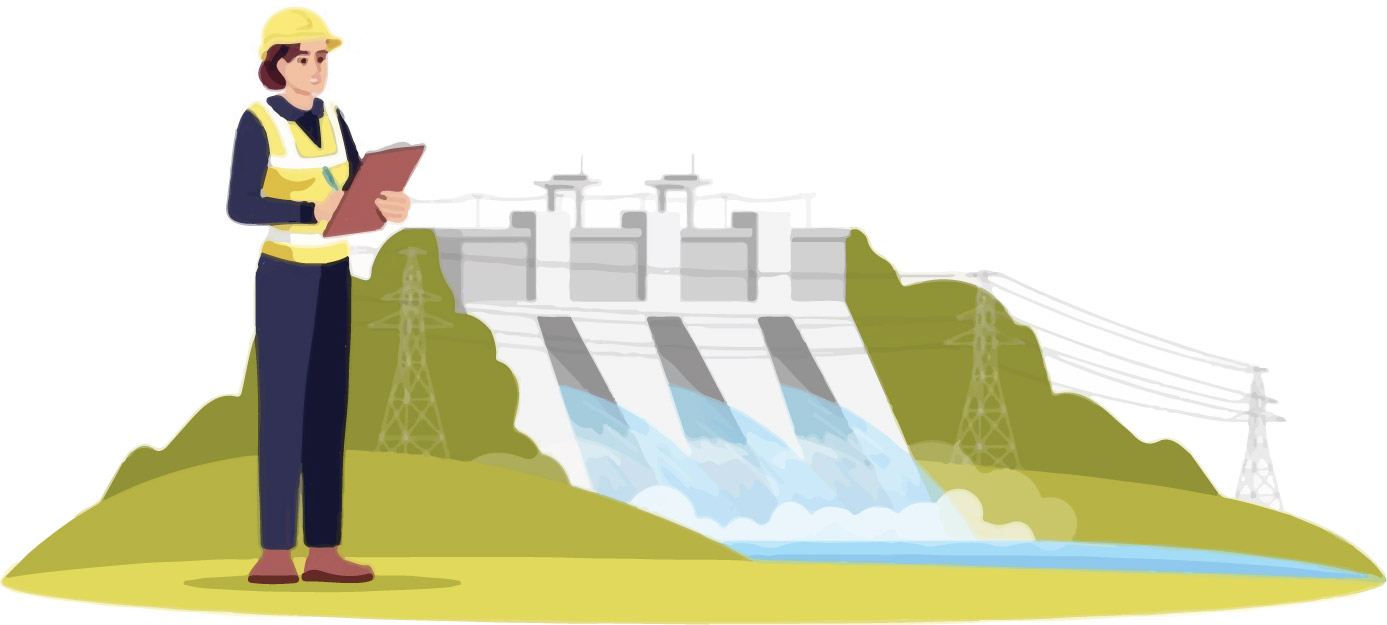Sustainability at Manila Water
IF-WU-450a.4

KEEPING THE WATER FLOWING TO COMMUNITIES EVEN DURING A CHALLENGING TIME
Manila Water, as a water and sanitation service provider, is a lifeline in the communities it serves. No community can be sustainable without adequate water and sanitation available to everyone, and for a community to be resilient against man-made or natural threats, those water services must also be resilient. The Company has a core service obligation to provide water and wastewater services delivered to customers in a reliable and efficient manner, resilient towards various risk scenarios, and at an affordable cost. The Company continuously strives to expand these services to more people -- especially the marginalized -- and improve the way its services are delivered. The Company believes that inclusivity is fundamental in its service expansion plans, making sure that no one gets left behind especially the marginalized communities, also known as the base of the pyramid. The Company continues to enhance its business continuity program to anticipate different disruptive events. At the same time, the Company have made significant investments in ensuring asset and operational resilience.
ACCESS TO CLEAN WATER IN EVERY HOUSEHOLD
Manila Water’s flagship sustainability program, the key manifestation of its ‘creating shared value’ story, is the “Tubig Para Sa Barangay” (TPSB) or Water for the Community program that addresses the need of low-income communities for clean and affordable water. With technical, organizational and business model innovations adopted since 1997 to ensure that water services reached the unserved and underserved, the TPSB has become recognized as a best practice in the global water sector.
Complementing the TPSB program is the Lingap program that provides clean water to public service institutions such as schools, public markets, and hospitals, ensuring that people have access to clean and safe water beyond their dwellings. Both TPSB and Lingap were replicated and adopted in the Boracay and Laguna subsidiaries taking into consideration local conditions.
During the COVID-19 pandemic, Manila Water continued operating to serve communities with water which is vital in ensuring public health. In response to the Bayanihan Act, it provided concessions by deferring water service disconnections due to unpaid water bills, and installment schemes were agreed upon with affected customers.
DISRUPTIONS AND RESILIENCY
The sustainability of Manila Water’s provision of water and wastewater services to the public lies heavily on its resilience against any disruption, man-made or natural. This resiliency is a must on the physical assets, the employees and the support services that ensure a smooth recovery and restoration of operations arising from any disruption such as earthquake, floods and droughts.
Manila Water has initiated ‘Project Kawayan’, a flagship resilience program conceptualized to:
The project is led by the top leaders and business continuity plan partners from various groups across the Company. A technical working group conducts of risk assessment and business impact analyses which provide a view of possible impacts on human capital, financial, technical, reputational, operational and legal aspects of the Company.
As the Company’s long-term operational viability is threatened by climate change, Manila Water is committed to make its assets, operations and supporting actors climate resilient to ensure the continuity of services. The Company’s strategies to address the risks and opportunities of climate change are specified in the Manila Water Climate Change Policy which focuses mainly on climate change adaptation while supporting climate change mitigation initiatives. Among the adaptation initiatives are:

(A comprehensive discussion of Manila Water’s climate-related risks and opportunities, strategies and accomplishments are in the published 2015-2020 Manila Water Climate Change Report.
NURTURING PARTNERSHIPS
Despite the COVID-19 pandemic, Manila Water continued to nurture partnerships with communities through the kasangga system. The community partners, or kasanggas, act as the force multipliers on the ground by relaying advisories to customers on matters such as water interruption, desludging drives, and public consultations. Due to government restrictions imposed during most of 2020, the Company’s customer representatives maximized the use of online platforms such as Viber, Messenger and Facebook. This enabled the Company to receive real-time feedback, such as water pilferages, pipe breakages, and other service complaints, resulting in faster response times and problem resolution
Reeling from a water crisis in early 2019, the Company has secured approval from the water security agency for the development of medium-term water sources, some of which are located in watersheds which are in the domain of indigenous peoples. As the new water headworks are being built, the Company has started work on the rehabilitation and enhancement of surrounding watersheds by engaging the local communities and people organizations in environmental education, provisioning of sustainable livelihoods and a long-term tree nurturing program focusing only on native species. Although engagement with the Dumagat indigenous peoples of Angat and Ipo have been going on for decades, in 2020 the Company embarked on forming partnerships with Dumagats of Tayabasan at the Marikina watershed to support the Wawa Calawis project. In the island of Boracay, Manila Water has a long existing partnership with the Ati community, particularly on the provision of potable water under the “Lingap Para sa Katutubo” program.

Manila Water's success through the years had been anchored on partnerships with stakeholders, and the strongest so far has been those with the local communities and customers. Notwithstanding external disruptions, the Company continues the work in nurturing those partnerships to further live the mission of ensuring that business operations remain inclusive, resilient and sustainable.